Mines Paris – PSL, an incubator for entrepreneurs: interview with Éléonore Crespo, alumna and co-founder of Pigment, and Philippe Mustar, Professor of Innovation and Entrepreneurship
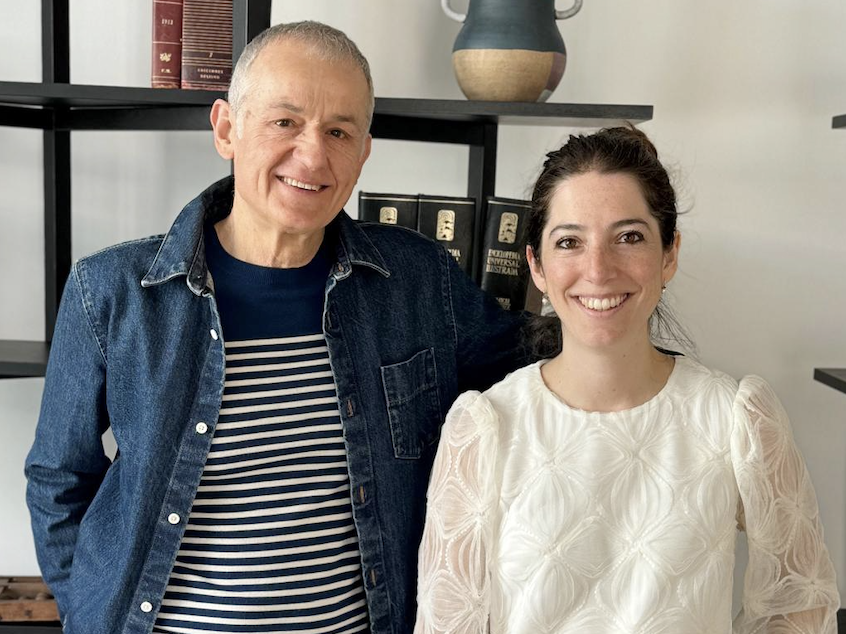

At Mines Paris – PSL, the Innovation and Entrepreneurship option trains bold minds capable of pushing back the frontiers of innovation. Among its graduates, Éléonore Crespo perfectly embodies this philosophy. Co-founder of Pigment, a revolutionary financial planning platform, she raised $145 million in April 2024, propelling her company to unicorn status. In this interview with Philippe Mustar, her Option teacher, Éléonore talks about the decisive impact of this training on her career path. She shares her memories, what she learned and the keys to her success.
The option gave me an understanding of what it’s like to set up a business, what it’s like to finance or grow a business. But above all, the aim was to learn to work together, to develop a collective project. Philippe gave us the keys to entrepreneurship. Thanks to him, I really realized that this was what I wanted to do in life.
Éléonore Crespo
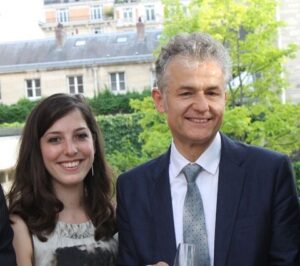
Eléonore Crespo and Philippe Mustar at the graduation ceremony in June 2012
I remember my first meeting with Philippe very well. It was at the mines, when I came in for some interviews. From his office window, we could see the apartment of the composer César Franck, and we talked about music, among other things. For me, it was a discussion I’ll always remember. I remember saying to myself: I hope I’ll have the chance to come to the mines and be with this teacher.
I could see that he had a real passion for teaching, for students, for culture… In the questions he asked me, I sensed a strong desire to take a whole group of students beyond the subject of entrepreneurship, and to open them up to the world, to make them citizens of the world; and that was important to me, coming as I did from the ENS, a very good school but a very theoretical one. When he presented the option, he transmitted his communicative energy to me.
What’s more, I found it remarkable that this school took the time to meet and talk with students, which is rare in engineering schools.
In June 2010, Eléonore Crespo, a student at ENS, wanted to enter the2nd year at Mines de Paris, in the Innovation and Entrepreneurship option (see below). She has passed her maths, physics and French orals with flying colors, and as head of the option she’s applying for, I’m taking her to the final interview. I met a candidate with a very strong personality, very dynamic and interested in setting up biotech start-ups, but also in a thousand other things. Convinced that she would bring a great deal to the option, but also that this training would be useful to her, I recruited her and she entered the École in September of the same year.
Yes, of course I do. It fully reflects the richness and diversity of the experiences we encourage our students to explore. Eléonore arrived at the mines just after an internship at Cavendish Laboratory, the physics department of Cambridge University (the work she carried out there will result in the co-authorship of a scientific publication).
At the end of their2nd year, students take part in an “engineering internship” abroad. Éléonore chooses to work for a major corporation, opting – in 2011 – for Schlumberger, in Houston, Texas. In an engineering department where her work is much appreciated: her internship report is twice as long as the norm: 72 pages.
For her final assignment in her3rd year, she opted for the world of the Internet with Work4Labs, a Parisian recruitment start-up that uses social networks, notably Facebook. Here, she is in charge of sales and marketing strategy. Excellent work there too, as the company offered her a marketing job in San Francisco. But it was in New York at JCDecaux that she chose to start her career as a project manager in urban advertising. After two years, she returned to Europe, to Google, where she worked as a data analyst for the company’s CFO in London.
In 2017, she joined Index Venture, a well-known venture capital firm in London and San Francisco, and became an investor, joining the boards of companies such as Slite, Spendesk and Alan. The rest is history, and the subject of numerous press articles: at Index, Éléonore met another miner, Romain Niccoli, co-creator and CTO of CRITEO, a company in which Index had invested. In 2019, Éléonore (P10) and Romain (P97) co-create and co-manage Pigment, which is rapidly experiencing impressive growth.
I thought it was a fantastic trip! Philippe had organized it in an extremely intelligent way, with real attention to the details of things, places visited and people met. Everything was very well thought out. Above all, I felt that we students were treated like adults. These weren’t student visits, we had structured discussions with all the players: what is an entrepreneur? What is an incubator? What is an investor? What is entrepreneurship in London?
And then he took us on a tour of the Design Museum and the Saachi Gallery (with a cutting-edge contemporary art specialist ). I really loved this trip, which was a great moment in our lives at the mines, where he had already laid the foundations of entrepreneurship and shown us things we didn’t know at all.
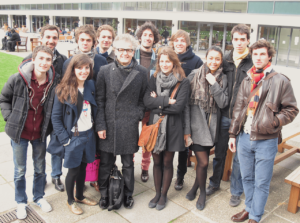
2nd year study mission on the English entrepreneurial ecosystem and its new financing models (London and Cambridge) in February 2011.
Yes, because, for the reasons I’ve just mentioned, this trip forged the group of optionnaires. For me, all the people who were in London are friends, friends for life. In the option, we formed an extremely committed group with students who knew why they were there, who were really motivated. And in fact, if you look at a photo of the group in London today, almost all of us have set up a business, or run a company, or worked in tech or been an investor.
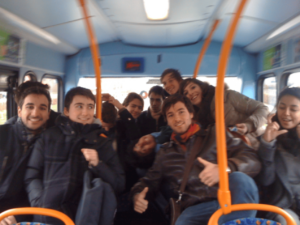
On a study trip to London, February 2011
First of all, it gave me an insight into the world of entrepreneurship. When I left the ENS, I didn’t know what a company, venture capital or a business plan was. The option gave me an understanding of what it’s like to create a company, and what it’s like to finance or grow a business.
The second is to have worked on a project. You have to know how to work together. Being top of the class or top of the league table doesn’t count anymore. Grades don’t matter. Philippe never talked to us about grades, I don’t even know what grades I had, that wasn’t the point. The point was to learn to work together, to develop a collective project… and that’s useful even if you don’t do entrepreneurship.
And then, there were some great courses, because an entrepreneur needs to know how to speak in public, how to draw up a business plan, the basics of marketing or sales. One course that really stood out for me was Learning to Negotiate, with an amazing speaker! He also confronted us with entrepreneurs who commented on and criticized our projects, challenging our certainties.
In short, Philippe gave us the keys to entrepreneurship. As far as I’m concerned, he really gave me a taste for entrepreneurship. Thanks to him, I really realized that this was what I wanted to do in life.
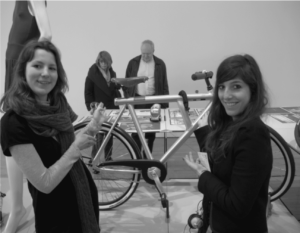
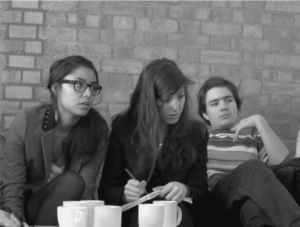
Innovation and Entrepreneurship option in 2011
During her studies at the Ecole des Mines and after her engineering degree, Eléonore always showed a formidable ability to adapt to very different fields, each time being able to go quite far in her understanding of them. While there is no one best way to become an entrepreneur, her career path shows that setting up a business is not a starting point, but always the result of a process, more or less long, made up of an accumulation of more or less varied experiences. Too often, entrepreneurship training courses adopt a narrow viewpoint, focusing on the start-up, its management, its organization and so on. In my view, we need to “take our noses out of the bottle” and encourage a diversity of experiences, both in our courses and in immersive situations such as student internships.
Understanding and solving problems in a variety of organizations and sectors is one of the skills that facilitates the entrepreneurial process. A process which entrepreneurship research has shown cannot be planned, requires numerous transformations, is an experiment every time, is full of decisions to be made and choices to be made, is collective, and is also, and perhaps first and foremost, a social process (i.e. made up of multiple interactions between a variety of people). And on this last point, Eléonore excels. It’s not just a question of a talent for communication, but of an ability to listen and understand the points of view of all those who will be, in one way or another, affected by the innovation or project in progress.
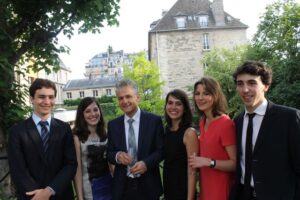
Graduation in June 2012
It’s very important to me The Anglo-Saxons talk about “giving back”. For years, we’ve been entitled to a free education of extraordinary quality. We owe it to the school to give back what it has given us. What’s more, I’m happy to keep in touch with teachers like Philippe, and to understand the students and their concerns. Yes, I’m on the jury for Entrepreneurship Week, and I love the projects I see. I understand what students are talking about today, the problems they want to solve. I think that’s great.
It’s a real source of pride Very soon after I arrived, I really integrated myself into the school, to which I’ve remained very attached ever since. But, on top of that, to have this recognition, twelve years after my graduation, I never thought it would be possible. I imagine that if this prize exists, it’s because the École is also proud to have students who create companies that grow, or more generally who launch projects that have an impact. I think it’s great to have this prize, and even nicer to have it with Romain, with whom there was an intergenerational mix, since he graduated in 2000.
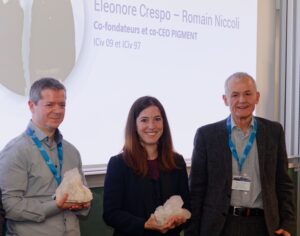
Romain Niccoli, Eléonore Crespo and Philippe Mustar at the Prix d’Honneur ceremony – Prix Entrepreneuriat Mines Paris PSL – Transvalor 2023
We are both co-creators and co-CEOs of Pigment. Romain is in charge of everything to do with the product – he’s a true software engineer, and has been ever since he left the École; and I’m in charge of everything else: business, finance and legal. We each make our own contribution. There’s a real complementarity between us that’s interesting for the project.
In a few words, Pigment is a performance management support platform. It helps a company’s financial, HR or supply chain teams to make data-driven decisions. The macroeconomic context is complicated, and companies need a great deal of flexibility and agility to monitor their performance and adjust their plans. Pigment provides them with a highly flexible, easy-to-use, yet powerful platform that enables them to manage a huge amount of data, thanks to AI. Today, we generate 60% of our sales in the United States (with customers such as Coca-Cola or Unilever), followed by France (SNCF or Europcar), Germany, the UK, etc. Pigment, created in 2019, now employs almost 500 people.
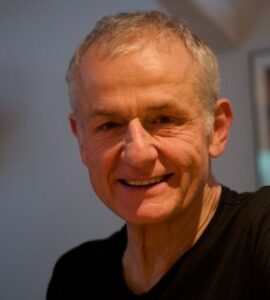
The option takes up most of the 3rd year of the civil engineering curriculum. It equips students with the spirit, skills and knowledge needed to tackle a wide range of entrepreneurial situations. The option encourages students to develop their full potential and apply the qualities acquired during their engineering training. The primary objective is not for students to set up their own business. Of course, some do so during their studies or just after graduation; others, after one or more professional experiences – as in the case of Éléonore -; finally, others use their learning to create new activities within existing organizations (SME, ETI, large group, association, etc.), which is also a form of entrepreneurship.
In the first semester, my course starts with a one-week mission abroad. I take the students to London, by Eurostar, to meet with entrepreneurship players: incubators, venture capital funds (Éléonore got her first taste of what would one day become her profession); at Imperial and Cambridge, we meet research start-ups and the heads of entrepreneurship centers; we tour the Design Museum and contemporary art galleries. Then, over a six-week period, the course combines lectures and seminars with entrepreneurship professors and researchers, workshops with professionals in the field (lawyers, patent attorneys, venture capitalists, etc.), meetings with entrepreneurs and visits to incubators and gas pedals. Alongside these theoretical and practical inputs, students, in groups of two or three, develop a start-up project in our coworking space, which at the end of the semester is presented to an investment committee. In the second semester, students choose either to pursue their start-up project and create a company (this is the case for a third of them), or to do “option work” in an existing start-up, a VC fund or a player in the entrepreneurial ecosystem.
Over forty companies have been created or co-created by option students. Some of them were created during the option or just after graduation. These include Wander by recent graduate Maxence Morillon (P20), Le Donjon by Eloi de Cossé-Brissac (P19), Kleep by Théophile Bousquet (P18) and Federico Fortis (P18), Cartage by Oscar Bourgeois (P18) and Raphaël Toledano (P18), SpaceFill by Quentin Drillon (P15), Bigblue by Mathias Griffe (P14) and William Meunier (P14), Neural Concept by Théophile Allard (P14), Yespark by Thibaut Chary (P11), DNA Script by Xavier Godron (P11), 1year1book and Kaducée by Romain Hill (P07), Nest For All by Khadidiatou Nakoulima (P06), and so on. Others were founded by optionnaires after a few years’ professional experience: Sakana by Baptiste Mangel (P17), Kamea Labs by André Dibé (P16), PayFlow by Benoit Menardo (P12), Mojo by Jean Patry (P10), BloomFlow by Thomas Girard (P09) and Ghislain de Juvigny (P11), Cuure by Jules Marcilhacy (P09), Ecotable by Camille Delamar (P08), Lovebox by Jean Gregoire (P08), Skopeon by Claire Dellatolas (P06), and so on. And, of course, there are many other remarkable companies created by engineers who graduated from the School without taking the Innovation and Entrepreneurship option, some of which I had the pleasure of following through their creation and development.
Éléonore Crespo’s career brilliantly illustrates the ambition of the Innovation and Entrepreneurship option: to offer students a genuine springboard to explore, innovate, undertake and have an impact on society. Through its theoretical and practical courses, personalized support and openness to the world, Mines Paris – PSL continues to train the leaders and entrepreneurs of tomorrow.
Entrepreneurship at Mines Paris – PSL
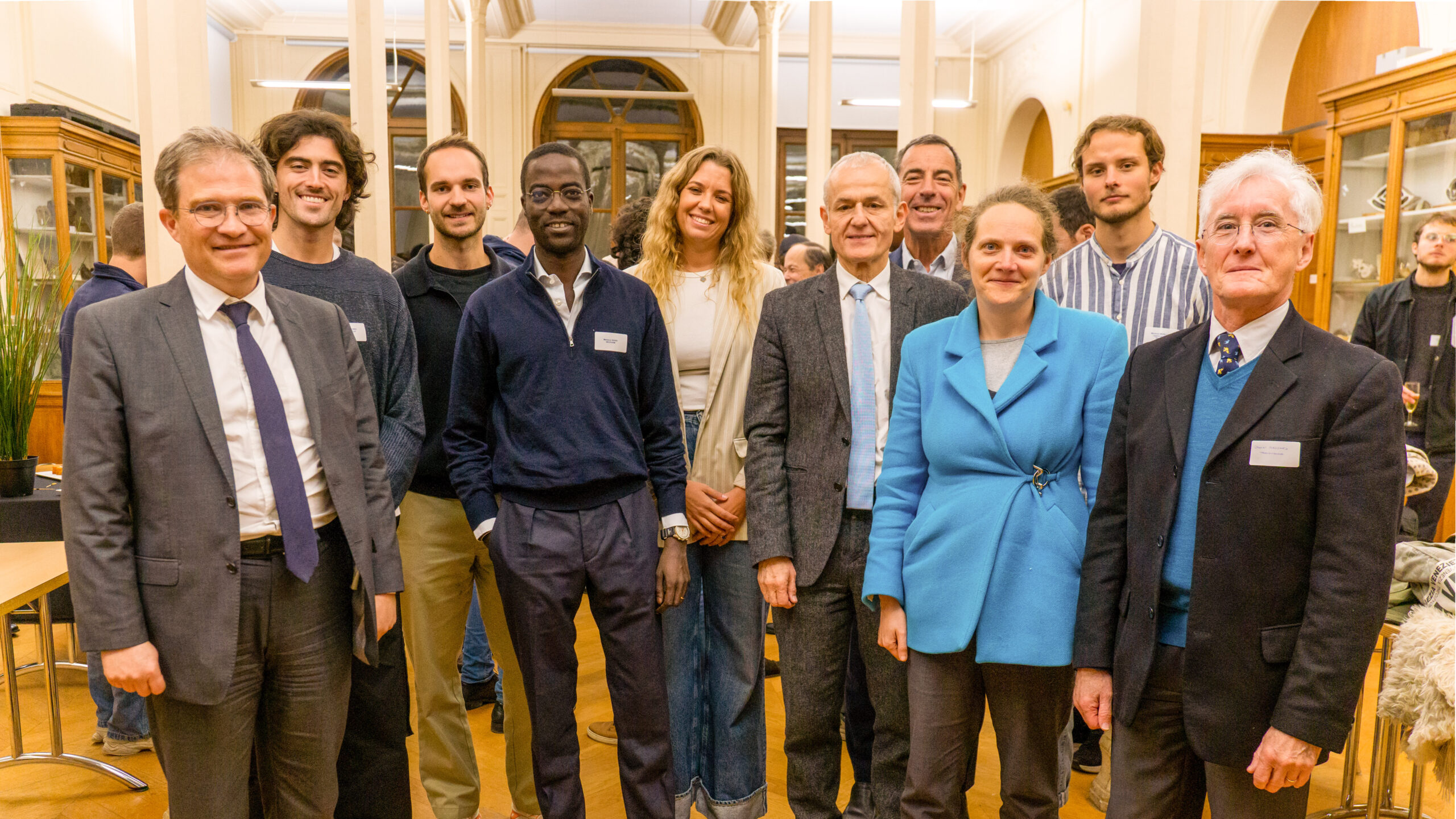
The 2024 Mines Paris – PSL Entrepreneurship awards, in partnership with Transvalor, sponsor of the event, was held Tuesday, November 12 on the Paris c...